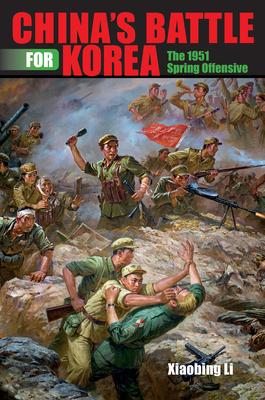Between November 1950 and the end of fighting in June 1953, China launched six major offensives against UN forces in Korea. The most important of these began on April 22, 1951, and was the largest Communist military operation of the war. The UN forces put up a strong defense, prevented the capture of the South Korean capital of Seoul, and finally pushed the Chinese back above the 38th parallel. After China's defeat in this epic five-week battle, Mao Zedong and the Chinese leadership became willing to conclude the war short of total victory. China's Battle for Korea offers new perspectives on Chinese decision making, planning, and execution; the roles of command, political control, and technology; and the interaction between Beijing, Pyongyang, and Moscow, while providing valuable insight into Chinese military doctrine and the reasons for the UN's military success.

China's Battle for Korea: The 1951 Spring Offensive
Between November 1950 and the end of fighting in June 1953, China launched six major offensives against UN forces in Korea. The most important of these began on April 22, 1951, and was the largest Communist military operation of the war. The UN forces put up a strong defense, prevented the capture of the South Korean capital of Seoul, and finally pushed the Chinese back above the 38th parallel. After China's defeat in this epic five-week battle, Mao Zedong and the Chinese leadership became willing to conclude the war short of total victory. China's Battle for Korea offers new perspectives on Chinese decision making, planning, and execution; the roles of command, political control, and technology; and the interaction between Beijing, Pyongyang, and Moscow, while providing valuable insight into Chinese military doctrine and the reasons for the UN's military success.